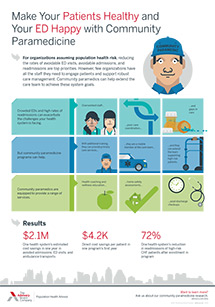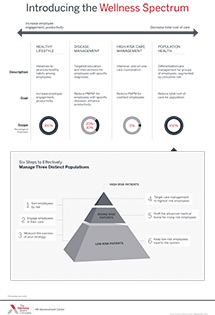Auto logout in seconds.
Continue LogoutAll but two of the 10 healthiest cities in the United States are on the West Coast, and three of the top cities are in California, according to an analysis by WalletHub.
For the analysis, WalletHub examined 174 cities in the United States, including the 150 most populated cities in the country, and compared them using 40 metrics across four different areas, including:
- Fitness;
- Food;
- Green space; and
- Health care.
Based on a weighted average of those metrics, the analysts calculated overall scores for each city.
The healthiest US cities
These are the 10 healthiest cities in the United States, according to WalletHub's analysis:
- San Francisco;
- Seattle;
- Portland, Oregon.;
- San Diego;
- Washington, D.C.;
- Burlington, Vermont;
- Scottsdale, Arizona;
- Honolulu;
- Irvine, California; and
- Denver.
Meanwhile, cities at the bottom of the list—representing the least healthy cities in the country, according to the ranking—were:
- Memphis, Tennessee;
- Corpus Christi, Texas;
- Jackson, Mississippi;
- Detroit;
- Fort Smith, Arkansas;
- Gulfport, Mississippi;
- Shreveport, Louisiana;
- Augusta, Georgia;
- Laredo, Texas; and
- Brownsville, Texas
WalletHub also provided top-five lists for specific metrics. For instance:
- Laredo, Texas, had the lowest cost of medical visit, while Worcester, Massachusetts, had the highest;
- Portland, Oregon, had the most healthy restaurants (defined as vegetarian, vegan and gluten-free establishments) per capita, while Augusta, Georgia, had the fewest;
- San Jose, California, had the lowest premature death rate, while Charleston, West Virginia, had the highest; and
- Seattle had the highest percentage of active adults, while Newark, New Jersey, had the lowest.
Here's WalletHub's map of all 174 cities:
Discussion
If you're looking to choose a healthy city to live in, John Sardelis, the associate chair of health administration and a professor at St. Joseph's College New York, said that it's important to look for good medical care and education. "Research has consistently shown a positive correlation between health status and years of education, so, indirectly, you would benefit from being part of a healthier population," he said.
Rebekah Gee, secretary of the Louisiana Department of Health, said the key to a healthy city is walkability. "While riding in a car can be a convenient mode of transportation, we can be mindful of our health by making time to walk wherever we're going." She said that walking is also a great way to live a healthier lifestyle on a budget. "Walking is great physically, but also economically and socially," she said (Ellison, Becker's Hospital Review, 2/12; WalletHub list, 2/12).
Understand the wellness spectrum
Programs aimed at promoting healthy habits among employees are likely to lead to improved employee engagement and productivity—but they're unlikely to reduce the total cost of care. To do that, you'll need to take a population health approach.
Don't miss out on the latest Advisory Board insights
Create your free account to access 1 resource, including the latest research and webinars.
Want access without creating an account?
You have 1 free members-only resource remaining this month.
1 free members-only resources remaining
1 free members-only resources remaining
You've reached your limit of free insights
Become a member to access all of Advisory Board's resources, events, and experts
Never miss out on the latest innovative health care content tailored to you.
Benefits include:
You've reached your limit of free insights
Become a member to access all of Advisory Board's resources, events, and experts
Never miss out on the latest innovative health care content tailored to you.
Benefits include:
This content is available through your Curated Research partnership with Advisory Board. Click on ‘view this resource’ to read the full piece
Email ask@advisory.com to learn more
Click on ‘Become a Member’ to learn about the benefits of a Full-Access partnership with Advisory Board
Never miss out on the latest innovative health care content tailored to you.
Benefits Include:
This is for members only. Learn more.
Click on ‘Become a Member’ to learn about the benefits of a Full-Access partnership with Advisory Board
Never miss out on the latest innovative health care content tailored to you.


